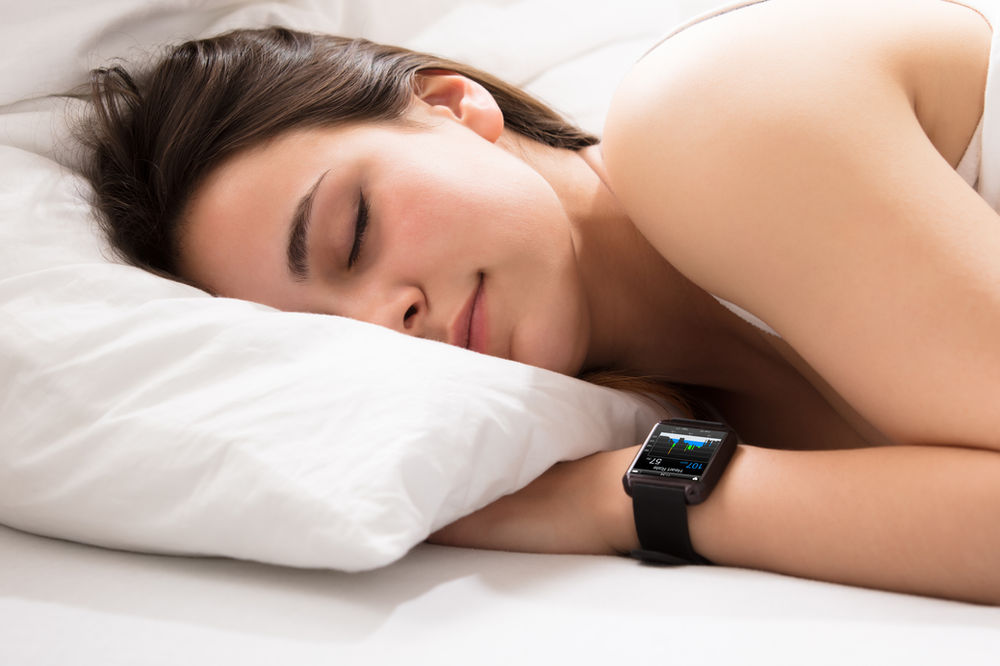How Much Does a Sleep Study Cost? Understanding the Financial Aspect

Sleep studies are valuable diagnostic tools used to identify sleep disorders and help individuals get a good night’s rest. However, many people are concerned about the cost associated with these tests. In this article, we will delve into the financial aspect of sleep studies, providing an overview, exploring the cost breakdown, discussing factors that influence the cost, and finally, offering tips on managing sleep study expenses.
Understanding Sleep Studies: An Overview
Sleep studies, also known as polysomnograms, are non-invasive tests conducted in a sleep lab or at home to evaluate the quality of sleep and diagnose sleep disorders. During these studies, various parameters are monitored, such as brain waves, heart rate, eye movements, and breathing patterns.
These tests are typically ordered by sleep specialists, neurologists, or pulmonologists to investigate conditions like sleep apnea, narcolepsy, insomnia, restless legs syndrome, and other sleep-related issues. All these include in Sleep Study Cost.
Understanding the intricacies of sleep studies can shed light on the fascinating world of sleep medicine. The data collected during these studies provides valuable insights into an individual’s sleep patterns, helping healthcare professionals tailor treatment plans to address specific sleep disorders effectively.
Moreover, the advancements in technology have revolutionized the field of sleep medicine, allowing for more accurate and comprehensive data collection during sleep studies. From sophisticated monitoring equipment to innovative analysis software, the tools used in sleep labs continue to evolve, enhancing the precision and efficiency of diagnosing sleep disorders.
What is a Sleep Study?
A sleep study involves spending a night at a sleep lab, where sensors and electrodes are attached to your body to record sleep-related data. A technician supervises the study throughout the night, ensuring accurate measurements and precise analysis.
Furthermore, the sleep lab environment is designed to mimic a comfortable bedroom setting, promoting a natural sleep experience for the individual undergoing the study. This attention to detail ensures that the data collected is a true reflection of the person’s typical sleep patterns, aiding in an accurate diagnosis. Learn more at https://hanarosehealth.com/sleep-study-perth-evaluating-sleep-patterns-in-western-australia/ about sleep study Perth to evaluate sleep pattern in western Australia.
Why Might You Need a Sleep Study?
Sleep studies are necessary when individuals experience symptoms like excessive daytime sleepiness, chronic snoring, sudden awakenings gasping for breath, or difficulty falling or staying asleep. These tests help diagnose sleep disorders, guide treatment options, and improve overall sleep quality and health.
By undergoing a sleep study, individuals can gain valuable insights into their sleep health, paving the way for targeted interventions that can enhance their quality of life. From lifestyle modifications to medical interventions, the results of a sleep study play a crucial role in improving sleep quality and overall well-being.

The Cost Breakdown of a Sleep Study
Now that we understand the purpose and significance of sleep studies, let’s dive into the cost breakdown. It’s important to note that sleep study costs can vary depending on several factors, so it’s essential to consult with your healthcare provider or insurance company to get accurate estimates tailored to your situation.
Initial Consultation Fees
Before scheduling a sleep study, you will typically need an initial consultation with a sleep specialist. During this appointment, the doctor will assess your symptoms, medical history, and conduct a physical examination. This thorough evaluation ensures that the sleep study is necessary and appropriate for your specific needs. Initial consultation fees can range from $100 to $300, depending on the healthcare provider and your location.
During the initial consultation, the sleep specialist will take the time to listen to your concerns and answer any questions you may have. They will explain the sleep study process in detail, including what to expect during the study and how the results will be interpreted. This comprehensive discussion helps to alleviate any anxiety or uncertainty you may have about undergoing a sleep study.
The Price of the Actual Sleep Study
The cost of the actual sleep study itself can range from $500 to $3,000 or more. This price encompasses the use of the sleep lab, equipment, monitoring devices, and the expertise of sleep technicians who analyze the data. The complexity and duration of the study, as well as the location and type of facility, play key roles in determining the total cost.
When you arrive at the sleep lab for the study, you will be greeted by friendly and knowledgeable staff who will guide you through the process. They will explain the purpose of each piece of equipment and ensure that you are comfortable throughout the night. The sleep technicians are highly trained professionals who will monitor your sleep patterns and collect valuable data to assist in the diagnosis and treatment of sleep disorders.Learn more about equipment click here.
Follow-up Appointment Costs
After a sleep study, it is common to have a follow-up appointment with your sleep specialist. During this visit, the results of the study will be discussed, and treatment options, if necessary, will be explored. Follow-up appointment costs can vary, but they are generally similar to initial consultation fees.
During the follow-up appointment, the sleep specialist will carefully review the data collected during the sleep study. They will explain the findings in a clear and understandable manner, ensuring that you have a complete understanding of your sleep health. If treatment is recommended, the sleep specialist will discuss the various options available to you, taking into consideration your individual needs and preferences.
It’s important to remember that the cost of a sleep study is an investment in your overall health and well-being. By identifying and addressing any underlying sleep disorders, you can significantly improve your quality of life and reduce the risk of associated health complications. So, don’t let the cost deter you from seeking the help you need to achieve restful and rejuvenating sleep.

Factors Influencing the Cost of a Sleep Study
Several factors contribute to the overall cost of a sleep study. Awareness of these factors allows you to better understand the cost variation and make informed decisions regarding your sleep health.
When considering the cost of a sleep study, it’s essential to delve deeper into the intricacies that can impact the final price tag. By understanding these nuances, individuals can navigate the financial aspect of sleep studies more effectively. Learn more about factors influencing the cost of a sleep study visit at https://www.ncbi.nlm.nih.gov/pmc/articles/PMC6530553/
Location and Facility Type
The cost of a sleep study can differ depending on your geographical location and the type of healthcare facility you choose. In metropolitan areas, sleep studies may generally be more expensive compared to rural areas. Moreover, sleep centers associated with renowned medical institutions tend to have higher costs than independent sleep labs.
Furthermore, within a single location, the specific neighborhood or district can also play a role in pricing. Facilities situated in upscale areas or regions with higher overhead costs may reflect these expenses in their sleep study fees.
Insurance Coverage and Out-of-pocket Expenses
Insurance coverage significantly affects the financial aspect of a sleep study. Some health insurance plans cover a portion or the entire cost of a sleep study if it is medically necessary. However, be sure to check with your provider regarding specific coverage details, including deductibles, co-pays, and any out-of-pocket expenses you may incur.
It’s crucial to be aware of any pre-authorization requirements set by your insurance company. Failure to obtain proper authorization before the sleep study can result in denied claims or increased out-of-pocket expenses.
The Complexity of the Sleep Study
The complexity of your sleep study can influence the total cost. For instance, if you require additional monitoring or specialized tests, the price may be higher. Complex sleep disorders or the need for multiple-night studies contribute to increased expenses as well.
Moreover, the qualifications and experience of the sleep technologists conducting the study can also impact the overall cost. Highly specialized studies that demand the expertise of seasoned professionals may come with a higher price point to reflect their skill and training.
Ways to Manage Sleep Study Costs
While sleep studies can be costly, there are ways to manage and minimize expenses. Here are a few strategies worth considering:
Health Insurance and Sleep Studies
Start by exploring your health insurance coverage. Review your policy and contact your insurance company to understand the extent of their coverage. Inquire about any required pre-authorization or referral processes. Some policies may have preferred providers with negotiated rates, making them more cost-effective options. Additionally, consider joining insurance plans with sleep study benefits if available.
Payment Plans and Financing Options
If sleep study costs are a significant concern, discuss payment plans or financing options with your healthcare provider. Many facilities offer flexible payment arrangements, allowing you to spread out the expenses over time. Alternatively, inquire about third-party medical financing companies that specialize in funding medical procedures, including sleep studies.
Low-cost or Free Sleep Study Options
Some research studies or clinical trials may offer free or low-cost sleep studies as part of their investigation. Participating in these studies not only helps advance medical knowledge but can also provide access to sleep studies at reduced costs. Consult with your healthcare provider or inquire at local universities or medical research centers to explore these opportunities.
Furthermore, it’s important to note that the cost of a sleep study can vary depending on various factors such as location, insurance coverage, and the complexity of the study. In urban areas, where the cost of living tends to be higher, sleep studies may be more expensive compared to rural areas. Insurance coverage also plays a significant role, as policies differ in terms of what they cover and how much they reimburse.
Moreover, the complexity of the sleep study can impact the overall cost. Basic sleep studies, which monitor breathing, heart rate, and brain activity, tend to be less expensive than more advanced studies that involve additional measurements and specialized equipment. The duration of the study can also affect the cost, as longer studies may require more resources and personnel.
By understanding the financial aspect of sleep studies and exploring cost-saving options, you can make informed decisions regarding your sleep health without breaking the bank. Remember to always consult with your healthcare provider and insurance company to ensure you have the most accurate and up-to-date information regarding costs and coverage.
